

The Finished Novel Course
Everything you need to write, revise and finish your novel, with expert guidance and professional editorial feedback.






The complete writer-to-author journey
The Finished Novel Course is your complete journey from first idea to a manuscript that’s ready for literary agent submission. Start strong to come up with the big idea for your story, mastering timeless story structure to produce your outline. Next, move on to writing your novel, building daily momentum with expert guidance and personal coaching from your mentor, a bestselling author. Then, revise and polish your first draft like a pro, using our tools to raise your writing to publishing standards. Finally, get a full manuscript read with The Ultimate Manuscript Assessment, receiving detailed, publishing-standard feedback from Big Five professional editors to prepare your novel for submission to literary agents to move forward to the publishing deal. It’s everything serious writers need to begin boldly, polish professionally, pitch with confidence, and achieve their ambition to go from writer to author.
Beginners warmly welcomed
Ready to invest in yourself? Start your writing journey today
But I don’t have the time!
One hour per day of the year-long program. That’s all the commitment we ask of you. Just one hour a day to make your writing dreams a reality.
But I don’t have a story!
Then you’re in the right place. Step one of the course is designed precisely to kindle your ideas, find your voice, and craft a bold story.
But I’m not sure I have any talent!
Not all writers suffer from imposter syndrome. Only the good ones! The art of storytelling can be learned. And our team are the best in the business at teaching it.
The Finished Novel Course
The writer-to-author career path
The Big Idea
Come up with a fantastic idea for a page-turner. Plan a storyline that excites you and learn how to bring to life complex main characters. Outline and develop the world of your tale to capture the reader’s imagination page after page.
The Secrets of Storytelling
🪄 Lesson 1: You, the Writer
Storytelling is your birthright, a cunning art that can reverse inequalities, unsettle the natural order, and work magic even where none exists. Stories rely on credibility in the voice and bait in the promise, and both must work together. You should write first for yourself, choosing an idea that satisfies your own needs. Story and voice are inextricably linked. Find a natural voice and leave bad writing habits behind. Begin with a task to hear your own voice, capture it, and use it from here on out, starting your writing like a real writer from today.
🔍 Lesson 2: Find Your Story
Story is the answer to almost every writing problem, and this lesson shows you how a strong premise grows from simple ingredients arranged with structure, taste, experience, and outlook. You will be shown the sources of great ideas and stay open to humble beginnings, personal meaning, dreams, music, and the books you love, all of which point you toward the kind of story only you can write. The task will help you study the patterns of the stories personally meaningful to you, to enable you to mix the elements to begin shaping the building blocks of your own idea.
🎯 Lesson 3: Make It Mission Impossible
A great story begins with a problem at the edge of plausibility, a dilemma or quest no ordinary person could survive. This lesson shows you why starting with the impossible gives your novel power, ambition, and momentum. You learn how realism disguises artifice, how detail keeps the reader convinced, and how a bold premise lets you outwit doubt and stay committed. The task will introduce you to a natty way of producing the silver bullets your story will need to fire, in less than five words per idea.
📚 Lesson 4: The Elements of a Bestselling Classic
Discover the big moves of the all-time great stories so you can spot the ingredients that give fiction its lasting power. You will learn why writers steal, recycle, and remix ideas, how comps guide the industry, and how classic tales rely on extreme situations, magic, or misdirection, and an immersive “walk in my shoes” experience. Discover why readers want familiarity with a twist, why small stories endure, and how fairy tales and folk tales act as potent story starters. In the task, you will produce five more ideas using these prime movers.
🩹 Lesson 5: The Wound
Powerful stories grow from flaws, failures, rejection, and old hurts to find the authentic and highly individual material that gives a story its universal force. You will see how childhood losses, transformations, and hidden selves shape voice, theme, and character, and how honesty—not performance—keeps the work alive. Explore how authors rewrite what they couldn’t fix in life by giving the problem to someone else in fiction and tap the most unique source for your idea, to create a story with genuine human stakes.
💘 Lesson 6: Write What You Need
Your sense of justice shapes the narrative arc of a story. Your values drive every choice, from crime to romance to comedy. The expert author has the skill to work with their own nature to reveal crucial aspects of the players they need. Explore unrealized possibilities within yourself, learn how desire and conflict form the spine of a story. In the task, you will get a good grasp of the art form of the novel as the moral journey of one individual and use the arc of their character development to deliver a satisfying outcome.
⭐️ Lesson 7: The Main Squeeze
You will explore how stories hinge on the one person who experiences change and grows. Understand how main character, hero, and narrator are three roles you can assign for your different purposes. Discover how to build sympathy without making them “you,” in order to choose someone capable of transformation. Load them with flaws, danger, and desire to begin plot development. Find out how physical detail, predicament, and personality shape the reader’s attachment. In the task, you will gather candidates for your main character, sketch their traits, and test who has the strongest problem to drive your story forward.
🛡️ Lesson 8: The Hero
A hero is shaped by resistance, tested by circumstance, and revealed through their curiosity, decency, and sometimes a flaw that marks them as chosen. You will explore how ordinary people become heroic when pressed by injustice, how kindness earns allegiance, and how a cosmic flaw can be the sign of grace that drives the story. Discover how stories align the reader with the rebel who resists. In the task, you will map the tests, trials, and setbacks that could forge a hero worthy of your story.
🏡 Lesson 9: The Friendly & Familiar
Familiar people, places, and objects give your story its grounding, even when the plot sends your main character into danger, magic, or mystery. You will see how a benevolent presence—a guide, sidekick, or moral anchor—keeps the reader safe, and how chosen objects act as emotional tokens that signal home, history, and values to steady the reader before you lead them into the unknown. In the task, you will identify the friendly forces and familiar tokens that will reassure your reader and keep your story world worth fighting for.
👹 Lesson 10: The Villain
Every story needs a worthy enemy—both the outer antagonist who blocks the hero and the inner foe the hero must face down to grow. You will explore why villains are charismatic, why they mirror the hero, and how their certainty, charm, and self-regard sharpen the story’s moral stakes. Understand how the villain embodies the shadow side of your theme, defending the status quo while the hero pushes for change, and why the story only ignites when these forces collide. In the task, you will cast a convincing villain and shape the dance with the devil that drives a great plot.
⚖️ Lesson 11: Justice
Discover the hidden universal code of stories—a secret code of fairness—which quietly shapes the choices, consequences, and final balance of the best-loved tales. Learn how even the wildest plots obey a simple principle: something wrong must be set right. Understand how decency, retribution, restitution, and moral growth underpin the great stories. In the task, you will sketch how each of your budding story ideas might be developed to rebalance the scales and deliver justice.
🌿 Lesson 12: The Garden of a Story
Explore the garden as the world of your story—a place that is transformational. You will see how great writers use setting not as wallpaper but for the purpose of revelation: a landscape that exposes desires, fears, illusions, and the deeper truths for the main character. You will discover how your choice of place can act as sanctuary, or tighten the screws. Understand why setting is a state of mind, not a surveyor’s map. In the task, you will make your first sketch of the setting for your best idea in play so that you, as the author, can begin to spend time there in your mind as you develop the strongest idea so far.
🔥 Lesson 13: Toward Conflict
Explore how temptation, bribes, and taboos push a story by shaking a character’s moral balance. You will see how a hero is tested not only by hardship but by desire, distraction, and the quick fixes that expose their flaw. Learn why characters must lose control before they gain it, why injunctions spark plot, and how conflict arises when two value systems collide. You will learn that the battle—short, sharp, decisive—reveals what your main character truly stands for. In the task, you will define the value-based clash that drives your story toward the all-important drama of conflict.
✨ Lesson 14: The Treasure
The true prize of a story—the thing your character thinks they want is not as valuable as the deeper revelation they (and the reader) actually gain. Learn how withholding the treasure keeps pages turning, how great stories create endings that never truly end, and how the finest tales offer a form of resurrection: hope, renewal, continuity beyond time. In the task, you’ll define your character’s concrete desire, draft the message-in-a-bottle that reflects the story’s deeper wisdom, and chart the trials and gifts that frame the journey from suffering to reward to produce the spine of a plot.
🧭 Lesson 15: The Story So Far
You will gather everything you’ve created so far and test it for strength and staying power. You’ll stretch the ideas that still excite you, try which voice feels right for each, and compose the story elements that belong together. We will ensure your chosen idea suits your natural storytelling instincts, aligns with the books you love, and carries the big moves that make a story worth writing. You will shake down your ideas against a clear set of criteria to select the strongest contender and firm up the elements you need before we start outlining.
Outlining Your Story
🧩 Lesson 16: Story Structure
You will begin shaping the strongest of your ideas using the classic five-part structure that underpins long-form fiction. You’ll see how writers across genres use a clear sequence to organize plot, deepen character, and guide the reader toward a meaningful ending. You will discover how this structure sharpens your thinking, reveals gaps in your idea, and helps you test whether your story has the fuel it needs for The Big Write. In the task, you will map your idea against each point of our unique method—The Five Fs®, only at The Novelry—to see how your emerging story can take shape on the page.
🧿 Lesson 17: The Big Question
Every great novel—whether it’s driven by mystery, desire, or identity—sets one clear pursuit in motion from the outset, then keeps it alive through reveal, concealment, repetition, and rising stakes. You will discover how the question shapes your story’s pitch, your opening, and the reader’s hunger for more, and how even literary novels work hard to keep that question front and center. In the task, you will write your core question then raise its urgency by testing the stakes, adding obstacles, and framing it in the simplest, strongest form possible.
🎛️ Lesson 18: The Treatment
You will explore how the treatment of your story—the narrative perspective and sense of time—shapes the story itself. You will learn why first person draws us into an individual’s condition while third person reveals the wider social view, and how the choice determines the kind of justice your story delivers. You’ll discover how timeframe influences tension, how a ticking clock sharpens change, and how perspective affects connection, theme, and pace. In the task, you choose the viewpoint that serves the theme of your strongest idea, and test timeframes to heighten drama.
🎭 Lesson 19: The Theme
Let’s pin down the engine that sits beneath your story. Learn why a theme must stay hidden, why it must be humble rather than grandiose, and explore how the genre, casting, and structural essentials like the midpoint reveal the truth your story will be circling from page one. In the task, you will sketch possible themes, note what your main character gets wrong at the start, and identify the midpoint moment when the truth will surface—your best test of whether this idea deserves a book.
💫 Lesson 20: Starting to Plot
Begin shaping the chain of cause and effect that will carry your story from its opening hook to its resolution. You’ll discover how theme and character work together to generate plot. Explore your character’s before and after, and identify which antagonist embodies the opposing end of the value set of your theme. In the task, you will map the conflict across The Five Fs, create early plot beats using desire, denial, and resistance, and sketch the first passes of your story’s journey—your first true blueprint for the story ahead.
🧑🤝🧑 Lesson 21: The Cast
You will explore how your characters line up on the rope of your theme, each pulling in a different direction to create tension, friction, and movement. You’ll discover how the Four Types give you a clean, reliable way to balance your core cast, and why a Type A anchor, a Type B hothead, a Type C charmer, and a Type D villain create the necessary push and pull to keep a story alive. You’ll see how their company, circumstances, and contradictions reveal who they are without heavy description. In the task, you will position each cast member along your theme, decide who is pulling your main character off-course or keeping them steady, and begin a private list of minor characters borrowed from real life to bring truth and texture to your world.
👤 Lesson 22: Feeling for Your Main Character
Explore how to earn the reader’s care from the first page by grounding them in essentials like where we are, who we are, and what’s happening before anything dramatic occurs. Simple, steady opening passages create emotional voltage, revealing a character through tokens, habits, and the way others react to them. Develop craft skills to avoid over-exposition and overwriting for good! In the task, you will draft a clean opening snapshot, clarify what your main character wants and why, choose the form of agency that drives them, test whether they truly have the most at stake, and build a private list of artifacts to bring them convincingly to the page.
🔀 Lesson 23: The Midpoint
Refine your storyline when you define the pivotal moment that turns your story on its axis and forces your main character to change. You’ll discover why the midpoint is the point of no return, how it kills false hope, exposes the flaw, and breaks the old coping strategy so thoroughly that your character can no longer dodge, deny, or delude themselves. You’ll see how this moment reveals the theme, strips away the cover story, and triggers the transition from BEFORE to AFTER—where the fightback begins. In the task, you will identify the event that changes everything, test how your character suffers the consequences of earlier errors, and nail the reversal: flaw exposed, want disproved, and the first glimpse of what they truly need.
👥 Lesson 24: The B Story
A secondary storyline strengthens the theme and sharpens the main character’s journey. The B Story shows the far end of your theme—an alternative life, a dangerous promise, or a tempting delusion—and it must come into conflict with the A Story to expose what your main character needs. You’ll see how the B Story accelerates the crisis, reveals the risks of the opposite value system, and prepares your character to stand on their own two feet once both ends of the rope are dropped. In the task, you will generate possible B Stories tied to your theme and identify which one collides most powerfully with your main storyline.
🧑🦱 Lesson 25: The Second Character
The second character stands at the opposite end of your theme, shaping conflict, contrast, and growth. You’ll discover why this character is never a duplicate of your main character, why they often hold the qualities your hero lacks, and how their presence creates light and shade across the storyline. You’ll examine how this figure can function as sidekick, nemesis, antihero, or love interest, and how they ultimately lose something in the exchange while your main character gains what they need from them, or the rejection of them. In the task, you will design a second character who contrasts with your hero to give your main character the lessons they cannot learn alone.
🌍 Lesson 26: The Wider Cast
Now we are ready to widen the cast. You’ll revisit the four personality types, explore archetypes for inspiration, and learn where to find your minor characters. Supporting characters, even in small doses, generate energy, conflict, humor, and contrast. Understand how to use the subconscious emotional “messaging” of even the most minor character to bring the story to life. The lesson closes with the “20 Vital Signs”—a lightning-fast biography exercise that immediately brings your principal players into focus and generates natural plot ideas as you write. It all adds up to a richer world, sharper dynamics, and a cast ready to cause exactly the amount of trouble your story needs.
✍️ Lesson 27: Writing the First Outline
You will be ready to shape a working synopsis. You will gather the fundamentals: where we find your main character, what they want, why the reader cares, and how the agent of change tips their life off its axis. You will sketch the early beats of pursuit, failure, pressure, and the turning point that destroys their old strategies. You will also confirm theme, genre, setting, treatment, and the forces that stand against your hero. In the task, you will draft a one-page outline that captures each major beat in one clear sentence. This helps you test the mechanics of drama and ensures you begin with a story strong enough to grow.
📚 Lesson 28: Testing the Opening Chapter
Test your treatment on the page with simple, unfussy writing that serves the story. Develop craft skills to deliver an opening that is steady and confident, and learn how to use ordinary detail to create atmosphere. Apply visual “framing” to slow the scene to show what matters. Explore the tools of a working writer’s toolbox, common to every keyboard, to guide the reader’s attention. In the task, you will sketch a rough first chapter outline, try famous chapter structures for sandboxing, and draft an opening to test how your story behaves on the page.
🙌 Lesson 29: Please Yourself
Learn what it means to write for yourself first, choose the company you want to keep on the page, and trust the routine that makes writing possible. Understand how reading unlocks ease, how early beginnings stay loose until the ending is known, and why play, doubt, and curiosity are part of the work. Use a practical set-up that protects your process—your folders, rolling documents, notes, problems page, and small daily checks on theme, treatment, and character. In the task, you will organize your writing life and consider the signals—pleasure, discomfort, instinct—that help you choose the version of your story you most want to write.
🫶 Lesson 30: The Last Piece
Enjoy time with your main character and enter their inner life. Learn how to keep the story warm when you’re not writing, how to track the real source of the drama—the problem, the want, the flaw—and how to see issues clearly by returning to the outline. Discover why cutting creates space, why you rule the process, and be rewarded for your work with the key that opens the door to the story.
The Big Write
Prepare and develop your initial idea, construct your novel from the ground up, develop a productive writing practice, power through the middle with bold plotting, and raise the stakes toward a satisfying ending.
The Inspiration and Preparation Phase
Discover the big hack that will change your creative life. Learn the one characteristic great writers need, and the essential ingredient that makes a page-turner. Boost your creativity, and receive guidance on creating the time and mental space to write around your day job.
✨ Welcome
Set the foundation for writing your novel with some espresso shot to boost your morale and get you in the flow. Kick some old habits with some unusual tips to change your state of mind to one that is positively refreshed and raring to write!
📚 Read and Be Inspired
Read what you want to write! Study first chapters to see how great novels raise questions they later answer. Focus on story over style. Use reading to quell doubt daily, and build your confidence. Keep notes and prepare questions for your coach as your story begins to take shape.
🌙 Bedtime Stories
Reconnect with the books that first stirred a desire to write. Reflect on the emotional imprint of your early reading. Writing begins with that same private charge. Let gratitude, not pressure, guide the work. The impulse to write is your longing to speak across time and space.
🔁 Habits
Design a writing life that fits your real one. Build a simple routine that anchors your writing at a regular time each day. Avoid waiting for inspiration—consistency is the source of creative energy. Frequency matters more than duration.
🧠 The Big Hack
Make a meaningful sacrifice to claim time for writing—something must go. Identify what you’ll give up to honor the work ahead. Interrupt the cycle of perfectionism by writing fast and free. Write by hand in timed sessions to bypass the inner critic. Speed lowers self-consciousness and unlocks voice. Capture raw material first—refinement comes later.
🔒 Privacy
Protect your work from feedback, judgment, or scrutiny while it’s still forming. Keep the process private to preserve freedom and courage. Don’t announce your novel or share early pages. Privacy is the condition for real discovery and risk.
❤️ Empathy
Build a character by stepping inside their experience. Begin with feeling, not facts—let your empathy lead. Treat your character as a mystery to discover, not a device to control. The better you understand their contradictions, the more truthful and compelling your story will be.
🌫️ Moods
Track your emotional state and work with it, not against it. Don’t wait to feel inspired—use your current mood as material. Keep writing through restlessness, boredom, or doubt. Show up. Let the act of writing transform your mood, rather than relying on your mood to begin.
🙏 Bless You, Writers
Recognize that writing has its complexities. You’ll face resistance, loneliness, and self-doubt—but writing is an act of generosity. Honor your need to create, and commit to it. Writing well means living well. Trust the process, protect your spirit, and keep faith with your story.
🧩 What is Story?
A story begins with change. It puts a person in jeopardy. Story is structure—not style—and it must change the character by the end. Plot isn’t decoration; it’s the engine that reveals who your character truly is capable of becoming.
The Construction Phase
Take it steady with step-by-step guidance to prepare a one-page plan that packs a big plot. Say goodbye to writer’s block. A good story (almost) writes itself, so you and your writing coach will put an exciting storyline in place to get off to a cracking start.
🧭 Lesson 1: How to stay on track with the course
Use the first 15 days to build your story—alternating between planning and early exploratory writing—before your full draft begins. Stay connected to your writing coach and submit “The Plan” for feedback to keep your story development on track. If you’re rewriting, use this phase to reassess structure and elevate your idea. This is where you build the habit, commit to daily 60-minute writing sessions, and set yourself up to finish a first draft.
📖 Lesson 2: Welcome to your novel
Shape your novel’s premise by crafting a working title, a one-line pitch, and a promise to your reader. Start with something you know or care deeply about, then create distance by shifting time, place, or character to unlock perspective and theme. Identify your protagonist’s flaw and charm, then root your story in the voice and style of books you love. Keep refining the idea daily in your notebook—flipping it, challenging it, adding stakes—until it becomes a story worth the reader’s time.
🦸 Lesson 3: The Hero Book
Choose a single Hero Book to guide your novel-writing journey that offers a clear, reliable structure. Read it nightly to internalize its rhythm and shape. This book becomes your technical mentor, helping you solve story problems as you draft. It’s your companion for the course. Use it to support your structure, voice, and ambition.
⏰ Lesson 4: The golden hour
Build the habit of showing up daily for one hour to keep your novel alive in your subconscious. Even a light touch—reading yesterday’s work or jotting notes—feeds the 23 other hours of reflection that shape the story. Track-laying happens between sessions. Momentum comes from continuity, not volume. One hour is enough.
📚 Lesson 5: The genre
Understand what genre is and how it works. Learn how to use genre to define your story’s territory, structure, and reader promise. Explore examples across fiction to see how genre shapes plot, character, setting, and theme. Begin to identify the genre of your novel to give it coherence and direction.
🏔️ Lesson 6: The setting
Choose a time and place that shapes your characters, plot, and mood. Use setting to generate atmosphere, reveal character, or frame the story’s moral universe. Research real locations or build imagined ones that feel lived-in and essential to the story. For fantasy or sci-fi, create thresholds between worlds and combine the familiar with the strange. Make setting work as metaphor, emotional driver, and lens for your protagonist’s worldview.
🎩 Lesson 7: The magic trick
Build your story’s arc using the three-part structure of The Pledge, The Turn, and The Prestige. Shape your plot around a character’s transformation—what they want, what they resist, and what they become. Practice illusion through moral change. Sketch a journey that promises real stakes and delivers powerful, surprising resolution.
👤 Lesson 8: The main character
Design a character with a clear flaw, desire, and contradiction. Anchor the plot in their resistance to change. Focus on how they behave under pressure—not backstory, but present struggle. Build empathy by showing what’s at stake for them emotionally. Give them a worldview that will be challenged. Let the story test and transform it.
🧱 Lesson 9: The plot
Start shaping your plot by identifying the problem your main character must face. Learn how to use structure as a flexible guide, not a rigid map, by working back from a possible ending and sketching key complications along the way. Explore the “Man in a Hole” story shape and other narrative trajectories to create emotional movement. Begin using The Plan—your one-page outline—as a working tool that responds to the writing. Focus on pressure, escalation, and change as you throw rocks at your character’s beliefs and force a reckoning.
🪜 Lesson 10: Simple story structure
Learn the foundational two-act structure—problem and solution—anchored by a midpoint that forces transformation. Use The Five Fs® to map your story’s arc: Flaw, False Hope, Flight, Fury, and Facing It. Understand how each stage reveals your character’s blindspot, trials, and growth. Study examples from contemporary fiction to see how this structure builds momentum and resolution. Begin sketching your own Five Fs to shape the outline of your plot, using this framework as a flexible, development-focused tool—not a rule.
🪝 Lesson 11: The hook
Create a sharp, one-sentence pitch that captures your novel’s premise, character, conflict, and stakes. Build it around irony—emotional, moral, or situational—to give the idea lift and twist. Learn the structure of a compelling hook: who it’s about, what they want, what’s in their way, and what’s at risk. Explore techniques from both literary and high-concept fiction, including the “X meets Y” formula and the “What if...” prompt. Use the hook to test your story’s power, motivate your process, and prepare for agent pitches, publisher sales copy, and submission success.
👥 Lesson 12: The cast
Build your cast by splitting your own traits into characters, then widen the net. Use parts of your personality—flaws, strengths, contradictions—to shape your leads. Add figures from your life with a twist: change names, genders, or roles. Invent with feeling, not revenge. Explore the ethics of representation and consider whose story you’re telling. Draw from lived experience or research with care when writing outside your own identity. Finish with a list of characters who offer dramatic potential and truth.
🥸 Lesson 13: Character development
Create credible characters by listing their quirks, flaws, fears, and secrets—then use those to reveal personality through action and dialogue. Skip backstory dumps by knowing each character deeply: their job, income, past loves, relationships, regrets, and what they want. Use a short list of 20 prompts to fast-track this work, unlocking plot and scene ideas as you go. Focus on the top five to ten characters and return to this exercise during slower writing days to keep the work moving. Characters drive story—start drawing them with precision.
🗂️ Lesson 14: Getting organized
Set up your writing environment and tools to keep momentum. Use folders to store drafts, character sheets, and notes. Keep a hard copy of your outline visible. Use your notebook to capture freewriting, ideas, and emotional responses. Track your scenes with a spreadsheet or calendar. Protect time with a daily writing schedule. Build a system that supports consistency and focus. Writing a novel requires discipline—your workspace and tools must help you stay clear, prepared, and committed.
🗺️ Lesson 15: The Plan
Create a one-page snapshot of your story to guide your writing and coaching sessions. Draft your hook, synopsis, theme, and the central question your reader will be reading to answer. Use this live document to shape your plot as you write—updating it often. Submit your Plan at least 24 hours before each session so your coach can track your development and help refine your premise. This working outline will clarify your structure, genre, and goals, becoming the backbone of your novel and a professional tool to move your idea toward publication.
✍️ Lesson 16: Let’s write!
Begin drafting, even if your story feels incomplete. Focus on daily progress—start with 250 words and build gradually. Use your updated Plan weekly to track changes, knowing your plot and character may shift as you write. Don’t share your draft yet. Protect your focus. Show up, write, revise, and keep going.
🧠 Lesson 17: Point of view
Choose between first or third person based on the story’s needs. Learn how first person creates immersion and unreliability—ideal for thrillers and character-led narratives—while third offers distance, breadth, and universality. Understand free indirect speech as a powerful tool to blend close perspective with third-person narration. Try your scene in different POVs to find the best fit.
🗣️ Lesson 18: Voice
Forget finding your voice—focus instead on speaking plainly and truly. Let voice emerge both from how you see the world and how you might address a smarter stranger. Good voice convinces by not trying too hard. Explore examples of relaxed, confident storytelling in action. Avoid fakery or flourish. Use understatement, guilelessness, and humor as your tools. The goal isn’t to impress—it’s to invite the reader in so they forget the writer is there.
🪟 Lesson 19: Chapter one
Learn why first chapters are never final—they’re rewritten dozens of times—and how even great writers fumbled their openings. Discover the importance of setting a calm, confident tone, introducing character and setting and piquing the reader’s curiosity. Focus on what your protagonist wants, hint at what they need, and begin with a grounded moment that reflects your theme. Write 250 relaxed words.
🕸️ Lesson 20: Character mapping
Design each supporting character with a moral arc that affects your protagonist’s development. Map their trajectory—how they change across the story—using simple moral shifts. Ensure each character throws “rocks” at the hero to reveal flaws and create friction. Balance your cast across the moral spectrum and track their influence on the plot. Use The Novelry’s Four Types Method as a tool for close-knit groups. Once you know what each character wants and how they behave, you’re ready to write them scene by scene.
🧑🤝🧑 Lesson 21: Relationships
Build a dynamic web of relationships that define your protagonist’s moral arc. Learn to map each character’s role as helper or hinderer, anchoring your story in conflict and desire. Study triangular tensions and push-pull dynamics that generate dramatic momentum. Explore subplots by uncovering hidden motives and unspoken needs. Create a visual character map to clarify narrative pressure points and refine every scene. Let tension between characters shape your story’s energy, movement, and meaning.
👐 Lesson 22: Emotional strategies
Assign each major character a core emotional strategy—how they’ve learned to get love and attention. Choose from four core types: the Savior, the Flower, the Hero, and the Recluse. Observe how this ingrained tactic shapes their relationships, drives their dialogue, and triggers conflict. Use this lens to enrich character interactions, heighten tension, and create psychological credibility. Characters may moderate or switch strategies depending on the scene, but one dominant ploy should underpin each principal’s behavior.
🌳 Lesson 23: The theme
Test every story element—setting, cast, and plot—against a central thematic tension: what argument is the novel making? Explore conflicting values in your characters to dramatize this tension, placing your protagonist at the center of a tug-of-war. Use bold statements like “X is more likely than Y” to guide your choices. Add your working theme to The Plan.
💓 Lesson 24: The heart of a story
Find the emotional truth at the center of your novel—a moment of vulnerability, connection, or personal reckoning that carries moral weight. Begin with a private dedication to someone who embodies what matters most to you. This becomes your compass. Let your heart lead the writing, drawing from love, loss, and care to shape meaning for the reader. Select a guiding quote or song to anchor your intent. When you write from feeling, the reader feels it too. That’s the story’s purpose: to make us care.
🕊️ Lesson 26: The sacrifice
Explore sacrifice as the measure of commitment in story and life. Learn how great stories—from ancient myth to The Alchemist—use sacrifice. Understand its central role in the Hero’s Journey, where the protagonist gives up comfort for a greater purpose. Discipline reveals strength. This lesson invites a deeper connection between writer and story, asking what your characters are willing to lose.
🔨 Lesson 27: A better craftsman
Step back from the page and assess your work. Re-read your recent writing to identify weak scenes, tired phrasing, and moments where plot, dialogue, or tone drift off-course. Revisit your Plan, revise it if the story has shifted, and tighten your cast’s motivations. Root out clichés. End each chapter with a tease. Let the prose be plain to support the story’s truth. Shape your material—but don’t overwork it. Today, write as an editor.
🖼️ Lesson 28: The big picture
Visualize your story as a sequence of six turning-point scenes, using cinematic techniques to clarify structure and momentum. Identify your protagonist, goal, antagonistic force, and stakes. Then build a visual storyboard using notecards or tools like Canva to map transitions and flesh out scenes. Each location must earn its place.
🎬 Lesson 29: Happy writing
Learn how to work through self-doubt, navigate real-life interruptions, and make meaningful progress scene by scene. Discover proven mindset strategies from working writers—including how to embrace the rhythms of good and bad writing days, stay grounded in real life, and use your Hero Book to problem-solve at night. Leave the desk on time, avoid early fiddling, and trust the day-to-day process.
🧮 Lesson 30: Taking stock
Pause to review progress before moving to the next phase. Use the stocktaking spreadsheet to chart chapter-by-chapter word counts, setbacks, and lessons learned. Update The Plan as needed and reflect on how far you’ve come. If you feel off-track, schedule time with your coach. Whether slow or fast, the point is to keep going. This is a victory lap before the next leg: The Swim.
The Swim Phase
Learn expert skills and insider techniques to quickly improve your writing style. Find your voice and build your confidence as your word count passes the 10,000-word mark.
🏊♂️ Lesson 31: In the swim
Enter the Swim Phase—a shift from story set-up to story flow. Revisit the simple five-part structure to sketch out the story shape without over-planning. Learn how Kazuo Ishiguro wrote The Remains of the Day in just four weeks using “The Crash”: a self-imposed writing lockdown focused on output, not polish. Learn how compulsion drives story. When a character wants something intensely, the novel almost writes itself. This phase is about rhythm, grace, and pace. Begin writing forward with daily momentum and character-led intent.
🧭 Lesson 32: Moral range
Explore your protagonist’s capacity for action under pressure by mapping their moral range. Define what they can and can’t do, and identify the lie they live by that distorts their worldview. Use this to create tension scene by scene—especially as the story shifts from old world to new. Know when to press the button—what they’ll do when cornered—to drive story turns and deepen emotional impact.
🔥 Lesson 33: Compulsion
Pinpoint your main character’s compulsion—the hidden need that drives their actions, blinds them to truth, and fuels the story’s engine. Learn how desire, denial, and delusion work together to create narrative drive. Explore how this inner hunger creates moral tension and raises stakes. Repressed or transgressive compulsions create page-turning drama. Use moral range and inner conflict to expose the character’s organizing myth and push the story toward revelation, transformation, or downfall.
🎭 Lesson 34: Conflict
Build conflict that reveals theme. Let your protagonist and antagonist pull from opposite ends of a moral or emotional spectrum. Use tension to test values, surface hidden agendas, and create moments of rupture that shape character and story. Design the moment of greatest conflict so that it dramatizes the central question of your novel and forces change.
🪄 Lesson 35: From magic to mystery
Let the mystery deepen as your draft develops. Shift from plotting answers to posing questions—what the reader is reading to find out, and what you’re writing to discover. Use the one-page plan to hold structure lightly while staying open to surprise. At the two-thirds mark, allow meaning to emerge—private, profound, and unspeakable. Write to learn what haunts you. Let mystery drive the story forward.
📚 Lesson 36: How to write a cult classic
Borrow Jack Kerouac’s methods to create immersive, character-led fiction with lasting impact. Study his use of real people, not types, and mimic his overfamiliarity, fast prose, and vivid detail to convey immediacy. Learn to write with pace and presence—using observation over exposition—to give the illusion of spontaneity. Use these techniques to produce bold, idiosyncratic work.
🎭 Lesson 37: A real dream
Master the technique of “show, don’t tell” by using concrete sensory detail and true-to-life dialogue to immerse the reader. Learn how to build scenes that feel vivid while still knowing when to step in and tell. Explore how Kerouac’s prose reveals the power of language to reflect emotion, and where pure “showing” can fail.
🫂 Lesson 38: Assumed familiarity
Learn how assumed familiarity can immerse the reader instantly—bringing characters to life without formal introduction. Study how Kerouac uses eccentricity, catchphrases, and vivid, selective detail to distinguish a large cast. Use tics, colorful backstories, and out-of-type traits to avoid stereotypes and animate even minor characters in a few bold strokes.
👑 Lesson 39: The romantic imagination
Explore how the author Muriel Spark used fiction to exalt the romantic imagination over realism, building an authorial approach of taste, sensibility, and theme. Learn how to channel your own aesthetic convictions into character and story, free from convention. Discover how to make the uncommon feel true, how to embed meaning through voice and tone, and how to use fiction to reframe reality.
🔁 Lesson 40: The use of repetition
Use repetition to build intimacy with economy. Establish character through repeated phrases or gestures. Repetition keeps the reader’s eye on the cast while you advance theme. Deploy signature catchphrases that echo the novel’s central question, like a red ball bouncing across the story. Don’t repeat themes directly—repeat character affectations. Later, in the edit, you will trace this coded pattern through every page to sharpen focus and create a story that keeps readers turning pages.
♻️ Lesson 41: Redemption
Explore how great fiction offers moral restoration—not through absolution, but through affection and time. Learn how to use the redemptive arc to shift your character from what they want to what they need. Study the technique of flash-forward to deliver a sense of earned perspective. Redemption can be quiet or spiritual, structural or thematic. Understand how even flawed characters can be forgiven, and why good writing must grapple with grace.
🥛 Lesson 42: Keep it simple
Streamline your story by asking: whose story is this, what do they learn, and how do they change? Reduce characters, settings, and complications that aren’t essential. Troubleshoot problems like weak conflict or a protagonist too close to yourself. Use quick fixes—change gender, background, or name—to create distance. Anchor the plot in present conflict, not backstory. The goal: a clean, energetic through line.
✂️ Lesson 43: Overwriting
Learn how to cut overwriting before it sabotages your story. This lesson shows how bloated prose—didactic tangents, tired set pieces, excess emotion, and decorative adverbs—slows your pace and distances readers. Study examples from Hemingway, Baldwin, Morrison, and Walker to see how great writers use restraint. Apply three core techniques: trim adjectives and adverbs, reduce description to pinpointed detail, and shorten sentence length. Good writing leaves space for the reader.
✍️ Lesson 44: Becoming an author
Start working like a professional preparing for publication. Learn how to format your manuscript correctly—spacing, punctuation, paragraphing, and chapter layout all contribute to how the reader receives your work. Adopt a consistent file naming system, save drafts daily. Use a clean, conservative layout to earn trust before your story delivers the surprises. This lesson sets the standards that separate the aspiring writer from the working author.
📍 Lesson 45: The midpoint
Pinpoint the exact moment when your character can no longer go back—the midpoint of the novel. Identify the event or crisis that forces a shift in strategy, where their old ways fail and a new outlook begins. Show how they absorb qualities of their antagonist, confront hard truths, and begin their transformation. Update The Plan with this turning point, anchoring it in theme and character arc. This lesson crystallizes your story’s change trajectory—what they wanted was wrong; now it’s time to fight for what they need.
The Heat Phase
Here’s where you fall in love with your story. Banish bad habits and keep your eye on what the reader wants to stay on track with your plot. Discover some game-changing writing power tools, and raise the stakes in your story.
🎵 Lesson 46: Music
Use music as a tool to charge the energy and rhythm of your writing. This lesson introduces a new creative phase—The Heat Phase—focused on boosting pace. Learn how instrumental music can lift your prose and how lyric-driven tracks can teach economy. By the end, you’ll build a writing practice rooted in pace and feeling.
🔥 Lesson 47: From What If to Why?
Shift the driving question of your novel from “What if?” to “Why?” to deepen plot and character. Refine the core reader question using Maslow’s hierarchy of needs—starting from physical survival and safety to love, esteem, and purpose. Study how bestselling novels sustain tension through a single, evolving question. Use your character’s willful refusal to meet basic needs to create dramatic intrigue. Craft a story that plays on human behavior, digging into what your character won’t do—and why. A great novel hinges on one bold, burning question.
🧵 Lesson 48: The B Story
Construct a subplot that amplifies your novel’s theme and throws the main character’s journey into sharper relief. This secondary storyline should represent the opposite value system or outcome—embodied by a standout secondary character—and bring it into conflict with the “A” plot. Study how published novels use B Stories to heighten stakes and expose the moral consequences of your protagonist’s choices. Decide where this subplot will peak, ensuring it helps your hero reject the extreme and claim their own way forward.
🤥 Lesson 49: The lie
Find your novel’s core message by identifying the lie it reveals. Lies generate conflict, fuel suspense, and distort desire—whether personal, political, or cultural. Use examples from Orwell, Du Maurier, and Coetzee to examine how theme emerges when falsehood is exposed. Reframe character motivation by showing what they believe that isn’t true, and structure your novel as a journey from illusion to truth. Learn how to embed the lie in dialogue, catchphrases, and chapter turns to heighten dramatic stakes.
🧌 Lesson 50: I’m a creep
Use your shadow self to unlock honesty in your writing. Identify your flaws, contradictions, and moral complexities. Practice observing your darkest instincts, then shape them into your protagonist’s turning point. Keep a visible list of problems as they arise in your draft; naming them unlocks solutions. Learn to slow narrative time around self-revelation moments, as Colm Tóibín does, to give moral insight weight and emotional clarity.
😨 Lesson 51: Suspense
Build suspense by withholding information and creating unease. Study how Rebecca and In a Dark, Dark Wood use repetition, contradiction, and delay to disorient and tease the reader. Use short chapters, flashbacks, and emotionally charged contrasts—hot/cold, light/dark—to keep tension rising. Assign a “trigger word” to each chapter and increase its danger over time. Withhold answers until after the midpoint, when the worst thing must happen. Suspense is built on uncertainty—what the reader fears is more powerful than what they know.
🔧 Lesson 52: Make it harder
Raise the stakes. Impose constraints to sharpen your writing: shorten chapters, limit word counts, or apply a ticking clock. Increase external pressure on your main character—cut resources, add danger, create urgency. Tight structure boosts pace, and hard limits force invention. The harder the context, the more potent the message.
💬 Lesson 53: Crackling conversations
Write dialogue that feels alive and loaded with intent. Learn how to craft character agendas, cut exposition, and leave space for subtext. Discover how to avoid dull “ping-pong” exchanges and use silence, refusal, or abrupt exits for tension. Explore why contractions, clipped speech, and differentiated voices make dialogue real. Master clean tags, minimal adverbs, and active scenes that reveal character beneath the lines. This is where dialogue starts doing real narrative work.
🧠 Lesson 54: That’s peculiar!
Learn how to write with dissonance—deliberately placing details that don’t fit. Study the masters of the short form, like Chekhov, Carver, and Hemingway, to sharpen your ability to show what jars instead of what explains. Use visual discord to jolt your reader’s perception and invite emotional depth without melodrama. Highlight sensory oddities and peculiarities that spark vivid immersion. Choose standout details that linger in the mind. Let your prose be unexpected, strange, and true.
🎵 Lesson 55: The leitmotif
Discover how a light recurring detail—like a phrase, image, or object—can build continuity, add depth, and create intimacy between writer and reader. Explore the difference between heavy-handed symbols and subtle echoes that function like a shared in-joke or chorus. With examples from Vonnegut, Kundera, and Forster, learn how to thread a small motif through your novel to highlight emotional themes, mark time, and anchor meaning without exposition.
🐇 Lesson 56: The absurd
Introduce the irrational into your novel to deepen realism and resonance. Draw from Camus, Kafka, and Vonnegut to explore characters in conflict with a meaningless world. Use contradiction, bathos, and surreal events to mirror existential truths. Give characters odd behaviors or false beliefs and unlock humor in tragedy. Absurdity lets your story bypass logic to process pain. Add a comic wrong note! Let the bizarre do the lifting.
✒️ Lesson 57: The full stop. Period.
You will study Raymond Carver’s radical economy of style to understand the emotional power of clean, unadorned prose. Learn how to end scenes and chapters with impact using the “dying fall”—a literary technique that creates an introspective pause in the reader. Use punctuation, silence, and space to invite the reader in. Then stop. Let them think.
🍋 Lesson 58: Backstory
Minimize backstory to keep momentum and preserve immersion. Avoid explanatory digressions and let the present action reveal character and history. If background must be included, use it sparingly, incompletely, and only when it advances the story. Prioritize mystery, pacing, and sensory detail over explanation. Draft a private inventory of essential backstory in your notebook—then leave it out.
🔀 Lesson 59: Transitions
Learn how to shift between timelines or perspectives while maintaining the progress of the story. Structure each timeline to serve the story and anchor transitions with mirrored images or echoed prose. Study structural examples—from Slaughterhouse-Five to Revolutionary Road—to master seamless cuts and purposeful contrast. Build dual narratives that interact meaningfully. Whether alternating chapters or blending timelines inside scenes, use each shift to reveal character truth and deepen the theme. Transitions must feel inevitable, not mechanical.
🏅 Lesson 60: The prize
Consider what success means for you and this story. Visualize the prize—awards, impact, personal fulfillment—and use that vision to fuel your writing. But weigh it against the price: solitude, vulnerability, and the need for validation. Don’t show or share your draft yet. Keep your vision intact and stay focused on momentum. Book a coaching session. Let the writing be its own reward.
The Enlightenment Phase
Using the inside secrets of a Nobel Laureate, you’ll apply new masterstrokes to fulfill the promise of your story. Discover the deft and economical touches that give the reader those “a-ha” moments, and see the proof on the page that you’re mastering the skills of the craft.
🧘♂️ Lesson 61: Mastery
Enter The Enlightenment Phase by studying a master at work—Nobel Laureate, J.M. Coetzee. His novel Disgrace becomes your blueprint for serious fiction. Embrace slow, scrutinized craft. Discover moral sleight of hand, structural control, and linguistic precision. Learn how personal wreckage becomes literary gold. Through his example, start to treat your fiction as both the lighthouse and the rock using exposure, self-revelation, and sacrifice.
🤯 Lesson 62: Difficult questions
Learn from the painstaking process of J.M. Coetzee to embrace uncertainty. Discover how doubt, revision, and slow accumulation work for your craft. Writing isn’t about having answers—it’s about asking hard questions. Use notebooks to track your progress, explore your insecurities, and gather material.
🔪 Lesson 63: Self-destruction
J.M. Coetzee strips identity to its core in Disgrace, creating fiction through radical self-erasure. Explore the relationship between self-sacrifice and narrative power, where character and author collide in philosophical confrontation. See how the writing becomes an ethical act—an unflinching confrontation with shame. Writing at this level demands internal conflict. By witnessing Coetzee’s willingness to burn down the house of self, understand how fiction can become an act of creative destruction—yielding a story of brutal grace.
🏷️ Lesson 64: The title
Explore how a novel’s title encapsulates its magic, the agent of change. Study examples from literature that use eponym, image, juxtaposition, or reference. Test titles against your story’s meaning and evolution. Use this lesson to begin generating titles that capture the premise of your story at its core.
🩸 Lesson 65: The wound
Explore how personal loss fuels fiction. A wound—both authorial and fictional—drives a character’s compulsion. Understand how to write from suffering without sentimentality. Use this lesson to identify the wound in your own story and main character, to give your novel emotional integrity and transformative powers.
🌉 Lesson 66: The bridge
Revisit your opening sentence as your draft progresses—it should beckon the story’s end. Use your first line to seed paradox, establish theme, and set the reader’s expectations. Track how character and language evolve through re-drafts. Write a ten-word sentence that captures your protagonist’s dilemma.
👣 Lesson 67: Back and forth process
Embrace the messy motion of drafting—give yourself to the writing, then step back to question and refine. This lesson draws from J.M. Coetzee’s 17 drafts of Disgrace to show how great work emerges from doubt, persistence, and craft. Learn to navigate the discomfort of not knowing, and trust that taste and judgment are sharpened by failure. Use the first draft to explore freely—there’s time to look smart later.
⏳ Lesson 68: Present tension
Explore the dramatic force of the present tense. Learn how it creates instability, complicity, and immediacy by removing the safety of hindsight. Through examples like Disgrace and The Color Purple, see how present-tense narration drives moral urgency and places the reader inside the character’s crisis. If your prose feels flat, consider testing a tense change—even late in draft one.
💻 Lesson 69: Poet and programmer
Write sentence by sentence with the dual precision of a programmer and the emotional depth of a poet. See how structure emerges from theme, and how rhythm becomes a literary device. Discover how prose can carry musicality, and how writing becomes a form of self-navigation. Build meaning and movement, advancing line by line, like code.
🕰️ Lesson 70: The chapter outline
Create a working chapter-by-chapter outline to clarify the structure and pacing of your novel. Use it to map intentions, identify gaps, and simplify where needed. Study Coetzee’s Disgrace for a model of formal, purpose-driven structure: 24 chapters, each self-contained, each building tension and meaning. Focus on progression and economy—state your purpose, fulfill it, and move on. Use the outline to track your story’s momentum and ensure every chapter earns its place.
🌿 Lesson 71: Let them live
Free your main character from backstory and let them step forward. The best characters contradict their traits, hold true and false beliefs, and surprise both writer and reader. Write with paradox. Leave room for ambiguity at the end, allowing your novel to cast a longer shadow.
🎭 Lesson 72: The point of tragedy
Examine how tragedy operates as a vehicle for truth. Learn Aristotle’s three essential components—hamartia, peripeteia, and anagnorisis. Understand how tragedy evokes catharsis, forces reckoning, and offers the writer a deeper path to meaning. Study the five-stage structure of tragic narrative. Discover how writing reveals what you want to say—and how tragedy delivers truth through emotional disasters.
💖 Lesson 73: What is good?
Explore how great fiction transcends simple notions of good and bad to confront moral ambiguity. Using Disgrace by J.M. Coetzee, learn how visionary states like hypnagogia deepen your protagonist’s self-awareness and enrich narrative meaning. Trace David Lurie’s arc from egotism to humility, observing how memory, vision, and anagnorisis (tragic recognition) shape his internal reckoning. Discover how grace—not goodness—offers the novelist a more radical aim.
❓ Lesson 74: The big question
Refine the question driving your story by identifying what the reader is reading to find out—whether it’s whodunnit, will they get the prize, or who is this person really? Study how this central question can shift mid-novel, as in The Talented Mr. Ripley or Disgrace, evolving as character, setting, or theme develops. Use the question as both narrative engine and moral lens. Establish it clearly, revisit it often, and make it deliver personal transformation for both character and reader.
📘 Lesson 75: The story so far
Review the full arc of your novel and draft a working synopsis that captures your story’s potential without getting bogged down in imperfections. Use this moment to regain purpose and re-engage with your characters’ journey. If needed, book a coaching session and update The Plan. This is your opportunity to reframe the work, strengthen the through line, and prepare to carry the story forward to the end.
The Home Phase
Combine the key elements of storytelling and see theme, character, dramatic irony, narrative arc, and subplots working in harmony for a satisfying ending. Get advice on taking this draft to publishing standards. And then celebrate! You’ll have a manuscript in your hands and a story readers will love.
🏠 Lesson 76: Welcome home
Review the final structure and make adjustments to ensure the story is sound and grounded. Contrast your main character’s initial façade with their new self to clarify the novel’s arc. Use dream imagery and metaphor to explore how personal symbols, memories, and meaning can enrich your story. Prepare a sketch of the ending. Use the subconscious signals—night thoughts and dreams—that will now help finish what you’ve built. The home stretch begins here.
🪜 Lesson 77: Let’s build
Assign your existing chapters to the Five Fs framework rooted in classical tragic structure. Use this scaffolding to make sense of your draft and prepare it for a strong finish. Reorder material, if needed, to clarify escalation and transformation. Whether your chapters are short or long, give each a place in this sequence. Begin shaping your ending. This final phase is about making the book inhabitable—for you and your reader.
🏛️ Lesson 78: The house of magic
Use music and hypnagogic recall to explore each emotional stage of the story as a space: a messy front room, a closed bedroom, a blocked escape, a chaotic kitchen, and a bathroom of reckoning. Revise your Plan and schedule a coaching session to align story shape and character change as you approach the ending.
🛁 Lesson 79: The rooms
Plan your chapters as spaces within the larger structure of the house of your novel. Avoid episodic drift by ensuring that every chapter flows naturally from the last. Cut anything that doesn’t build both the psychological interior and action-oriented exterior.
🎨 Lesson 80: Interior style
Raise the standard of your writing by setting a higher bar for every sentence. Evaluate every line: is it necessary, true, distinctive? Create contrast: plain-speaking can sharpen the impact of strangeness. Build toward beauty and power by making each sentence count.
🏺 Lesson 81: Ornaments
Lend your novel the personal, the things that bring you comfort and joy—objects, sounds, and memories that mean something you. Scatter these “ornaments” through your characters’ homes, names, and dialogue to build a world that feels lived-in. Choose names with meaning, add leitmotifs with private significance, and shape a place rich with emotional texture.
🧳 Lesson 82: The attic
Learn how to use memory as a narrative space distinct from backstory—the “attic.” This is where you and your main character explore forgotten emotions and formative impressions. Use this mental storehouse to create atmospheric revelations that unfold in real time. The attic holds what’s unsaid. Return to it in moments of reckoning or reflection, and draw from its contents to deepen intimacy in pivotal scenes.
🧼 Lesson 83: Housekeeping
Expect messy days—when life disruptions knock you off track. Learn how to recover from derailment without spiraling. Use your notebook to make quick notes instead of forcing bad writing. Trust your original Plan and cut what doesn’t serve. Avoid writing about real-life grudges—they destabilize tone. Prioritize stability, repetition, and time over novelty. Build a quiet, protective routine around your process. Keep the novel safe, warm, and clean from inner sabotage.
🛏️ Lesson 84: And so to bed
Craft an ending that opens, rather than closes, a window. Examine famous last lines that spark mystery, and understand how a question (rather than plot closure) becomes your final gesture. This lesson encourages a subtle tying of threads, not a tidy bow—space for reflection and peace for the protagonist. Reflect on your own season as a writer, and let the novel go when the ideas stop coming. Complete your draft knowing it’s whole—for now.
🪑 Lesson 85: Home alone
Writing reveals more than it tells—what you’ve put on the page may expose more of you than intended, even behind fictional distance. Don’t seek outside opinions yet. Stay inside the work. Keep the mystery intact. Discover what this draft says about you, and decide how far into yourself you’ve truly gone. Resist the urge to share. The story has found its voice—and you may need to sit with it.
🚑 Lesson 86: First aid kit
Receive your collection of best writing tips from master writers. Use these as a personal survival guide for when the doubt creeps in. Explore the complete set of insights from published authors at The Novelry. Discover what they unanimously agree matters most. This lesson is a writer’s emergency kit for staying the course and finishing strong.
🏁 Lesson 87: Leaving home
Pause before editing. Set the manuscript aside for at least a month to gain the distance required for ruthless revision. Use that space to sharpen your judgment, stay curious, and strengthen insight. Then, revise with attention to your novel’s opening. Is the dilemma clear? Is the compulsion strong? Does it reflect the theme and arc? Make sure the story arises from character, offers transformation, and delivers what the reader needs.
📔 Lesson 88: The second draft
Step back for a month before beginning your second draft. Use the break to read recent novels in your genre, experiment with “sideways writing,” and sharpen your hook. Revisit your story with distance, ready to reshape it with clear eyes. Draft a revision plan—consider chapter structure, themes, and stakes. Prepare for The Big Edit, where you’ll receive expert editorial support to transform your draft into a submission-ready novel.
🏆 Lesson 89: Success
Define success on your own terms before seeking it in publishing. Discover how to stay grounded through setbacks, resist the lure of fame, and preserve your joy in writing. Learn to process rejection without ego, and build resilience with humility and kindness. Find inspiration in James Baldwin’s philosophy. Prepare for revision with The Big Edit and know that real success lies in loving the life and work of a writer—and you’ve got that, and a killer process, in the bag!
🎉 Lesson 90: Congratulations!
Celebrate! You’ve built the habit, learned the craft, and shaped a novel only you could write. Acknowledge the discipline it took to get here. Download your certificate, share the news, and put your feet up. This milestone is now a happy and significant moment in your new life as a writer, writing.
Plus genre-specific lessons, mini courses in memoir and children’s fiction, and resources.
Authors mentioned in the course include: Jane Austen, Donna Tartt, Kazuo Ishiguro, Stephen King, Raymond Chandler, Patricia Highsmith, Daphne du Maurier, Gillian Flynn, George Saunders, Kurt Vonnegut, Shirley Jackson, F. Scott Fitzgerald, Rachel Cusk, Sally Rooney, Ian McEwan, Emily Brontë, Zadie Smith, Toni Morrison, Jean Rhys, Carson McCullers, Charles Dickens, Agatha Christie, Ernest Hemingway.
Your course certificate
The Big Edit
Revise and polish your manuscript to the highest publishing standards, with in-depth feedback from your professional book editor, and management of the literary submission process.
Turning Pro
Go from writer to author with a clear, strategic roadmap, practical tools, smart systems, and a new publishing-ready mindset shift. Get a clear editorial roadmap and a structured revision process designed to take a manuscript to submission standard. The Big Edit is designed to save you drafts by front-loading strategic story development.
👋 Lesson 1: Welcome to The Big Edit
It’s time to commit to working in longer, focused sessions to get the best from this new draft. Discover when to seek feedback, how to use it, and what it takes to prepare a pitch-perfect submission. Learn how to work with input from editors who’ve acquired books for the Big Five houses. Start to raise your expectations of your own work—this is where you stop writing for yourself and start shaping a novel for publication.
👓 Lesson 2: Becoming the reader
Look at your manuscript through a reader’s eyes. Learn when to step away from your draft and how to spot what’s working (and what isn’t). Read other books strategically now, benchmarking your novel against successful titles in your genre. Take ownership of your book as a product for readers, not just a personal expression.
🧹 Lesson 3: Order! Order!
Clean your workspace, block out deep-focus time, and approach your story with calm logic. Use our prompts to uncover what’s great, what’s flawed, and what’s missing. Go back to the reason you started writing it, and remember what makes it truly lovable. Now, reframe your novel as a compelling, structured product—ready to earn its place on a bookshelf.
📄 Lesson 4: The smart manuscript
Format like a pro. This lesson shows you how to prepare a professional publishing manuscript. Follow industry-standard conventions for font, spacing, margins, paragraphing, punctuation, dialogue, and chapter layout. Learn the rules for page numbers, scene breaks, italics, title pages, and more, and pack a few apps and tools recommended by the authors and editors on our team.
🗂️ Lesson 5: Set up your folder
Build an efficient editing workspace using apps like Scrivener, Dabble, or a structured folder system. Set up scenes for easy navigation and restructuring. Learn to use timeline tools, plot grids, tagging, and version control. Organize research, track characters, and filter scenes by focus. Move easily between overview and detail with version tracking, scene reordering, visual plot grids, and distraction-free modes. But if tech’s not your thing, we have a workaround or two!
🩺 Lesson 6: Your check-up
Take stock of your mindset, your material, and your role as a storyteller. Let’s make sure you’re mentally and practically prepared to begin editing. Reflect on the story you’re telling: is it yours to tell, and are you equipped to do it justice? Let’s get you in great shape to nail it. You’ll complete a full pre-edit checklist, taking a moment to re-evaluate your story’s origins and your role as its author.
The Developmental Edit
You’ll develop your elevator pitch, story theme, structure, narrative arc, character development, midpoint, and more to work toward a chapter outline and a (pain-free) synopsis. Then it’s time for your first review session with a professional editor.
🧱 Lesson 7: What is story? A reminder
A story centers on change for the main character. Learn to identify the protagonist (who undergoes the greatest transformation), distinguish them from the hero (who may not change), and understand the role of the narrator (who witnesses the events). Explore how plot, setting, character, and time interact to shape narrative.
🗂️ Lesson 8: Genre glossary
Genre shapes reader expectations and drives market positioning. Identify your novel’s primary genre, even if it blends several, and explore the characteristics, conventions, and subgenres of major categories, including romance, thriller, fantasy, science fiction, literary, YA, MG, memoir, and more. Avoid common genre-specific missteps and get to work with your comparable titles.
🏷️ Lesson 9: The title
First, identify the agent of change in your novel—the moment, event, place, or character after which nothing is the same. Use this insight to generate title options that reflect your book’s core purpose and shape. Test your shortlist for market fit and memorability.
🧲 Lesson 10: The hook or one-line pitch
Craft a concise, compelling sentence that captures your novel’s premise. Use it to shape your edit, excite literary agents, and fuel the entire publishing chain from pitch to press. Focus on the stakes of the story. Explore proven structures for hooks—whether character-driven, dilemma-based, high-concept, or speculative—to supercharge your submission.
🧠 Lesson 11: An agent on the pitch or hook
Refine your working hook using real-world insight from top literary agents, who break a strong pitch down into three essentials: character, setting, and conflict—without relying on gimmicks or overworked language. With examples from successful submissions, you’ll see how a powerful hook opens doors.
✋ Lesson 12: The Five Fs
Develop your best story structure using The Novelry’s Five Fs®. Learn how to apply this story spine to any genre or form, identifying key turning points that expose your protagonist’s arc—from internal flaw to final reckoning.
🎸 Lesson 13: A bonus lesson from “The Boss”
See The Five Fs in action through a Bruce Springsteen ballad. In this lesson, you’ll track a full narrative arc—from Flaw to Facing It—within the structure of a single song. Learn how emotional stakes and character change can be packed into a tight space with a masterclass.
🖼️ Lesson 14: The big picture
Learn how filmmakers and novelists—from Ridley Scott to Nabokov—use scene-mapping tools like index cards, Post-its, and storyboards to visualize a story. Pinpoint your six major scenes and plot the beats between them. Use free tools to build a visual storyboard for your narrative. See your novel at a glance as a sequence of unmissable scenes.
🧮 Lesson 15: Approaches to plotting
Explore multiple methods to structure your novel. In this lesson, you’ll build a flexible working synopsis by combining The Five Fs with other plotting frameworks to choose the plotting tools that best serve your story.
🎭 Lesson 16: Theme and plot
Get character, theme, and conflict working together. Frame your theme as a potent argument—with two sides in vehement conflict—to drive character change and narrative pace. Test your theme by casting for and against it.
⏳ Lesson 17: The midpoint
Locate the point of no return in your novel—the moment when everything changes. Explore classic midpoint examples from The Godfather, Pride and Prejudice, Disgrace, The Great Gatsby, and more. Use our Kleenex Test and reverse-engineering techniques to engineer the axis of change in your story.
📄 Lesson 18: Synopsis
Write a professional, plot-driven synopsis that includes your main characters, central conflict, and the story arc. Discover what agents expect: no blurb-style teasers, no withholding of twists, and no indulgent prose.
🧵 Lesson 19: Synopsis workshop
Learn how to spot gaps in structure, weak stakes, and unclear character arcs. Rewrite your synopsis with practical tips from the team to showcase your story.
📚 Lesson 20: The chapter outline
Build a chapter-by-chapter outline using our tool to track pacing, character arcs, word counts, recurring motifs, cliffhangers, and key details like dates and locations. This is your map from first draft to finished manuscript.
👥 Lesson 21: Casting
Strengthen your cast by mapping the main players along the “rope of theme.” Learn the Four Types Method from The Novelry. Study examples from major works, and learn how to anchor each character through associations, action, and distinguishing detail.
🕸️ Lesson 22: Character mapping and cast relationships
Identify your core team—around five to fifteen players—and ensure each earns their place in the story. Study the web of relationships through the lens of reciprocal wants and needs, with emphasis on dramatic tension, conflict, and moral push-pull. Create a visual map of your cast to reveal the power dynamics.
🧨 Lesson 23: Character agency
Give characters agency by anchoring their actions in their hidden desires. Explore how deprivation creates compulsion, and how to empower the most disempowered characters. Use practical tools like our “Character Agency Ladder” to drive agency for more passive leads.
✊ Lesson 24: Getting to grips with the material
Update your outline, then interrogate every chapter: Why here, why now? What changes? Use the downloadable template to track chapter length, word count, and story flow. Learn the principles of effective chaptering—when to enter and exit scenes, how to use location shifts, and where to place cliffhangers. Cut weak subplots and merge flat characters; every scene must earn its place.
👥 Lesson 25: Meet the editorial team
Get ready to hand over your story for expert review from your Big Five editor at The Novelry. Understand the difference between structural edits, line edits, and what to expect from each.
🛑 Lesson 26: Let’s check The Plan
Prepare for your Big Edit First Session. Submit The Plan, your synopsis, your chapter outline, and (optionally) your prose to your editor. This is your first opportunity to see your story the way a publishing editor would see it.
Line Edit
You’ll interrogate your plot and characters, rework chapters, drill down into sentence structure and word choice, and eliminate grammatical, spelling, and punctuation errors line-by-line. You’ll learn how to apply our unique technique for advanced prose skills: Lucid Compression®.
Next, it’s time for feedback on your writing from beta readers in our online community.
🕵️ Lesson 27: Interrogation
Begin your second draft by asking the hard questions, moving from “what if” and “what next” to “so what.” Cut what no longer serves. Reorder scenes for impact. Use our unique interrogation framework to examine each decision: Does the hook honor the title? Does each word earn its place? Tighten and recommit to the reader’s journey.
📖 Lesson 28: The prologue
Whether or not you plan to include one, use a prologue to pinpoint your story’s central question, raise the stakes, establish setting, and ring the change from the start. Learn what makes a prologue work: urgency, intrigue, and theme in motion. By the end, you’ll have fresh insight into what makes your story matter.
✍️ Lesson 29: The first chapter
Know what to deliver up front: the main character, the setting, the problem, and the emotional tone. Use our unique “Thing One/Thing Two” structure to show both the surface conflict and the deeper story problem. Study how standout openings introduce the voice, and both the status quo and disruption.
🚫 Lesson 30: The cardinal sins
Root out the most common mistakes that weaken a manuscript. Tackle the big ones: excessive backstory, telling instead of showing, weak world-building, and overuse of adverbs. Replace flat exposition with dramatic action, build emotional depth through character behavior, and let the reader do some of the work!
✨ Lesson 31: The first sentence
Craft a first sentence that signals change, establishes the narrative voice, and primes the reader for what’s to come. Study examples across genres to understand what makes a first line unforgettable.
🗣️ Lesson 32: Voice and perspective
Explore the options of first and third person to select the right narrative distance for your story. Use practical tools like colour-coded POV maps to track multiple perspectives across your chapters. By the end, you’ll have a firmer grasp of how your characters see their world and how best to tell their story.
🎬 Lesson 33: Structuring a scene
Decide who’s present, whose point of view we follow, and where it’s best set to bring the drama! Use contrast, subtext, and physical movement to generate tension. Study examples from great novels and apply techniques like “get in late, leave early.”
🧨 Lesson 34: Creating suspense
Pair actions with their opposites, repeat trigger words to build unease, and escalate danger through your chapter sequence. Use short chapters, mannered dialogue, and deliberately misleading cues to create a story the reader can’t look away from. Study how famous novels use sleight of hand, flashbacks, and forward hints to keep secrets just out of reach.
🗨️ Lesson 35: Dialogue
Craft true-to-life dialogue that drives story, reveals conflict, and sounds natural. Give each character an agenda, avoid exposition dumps, leave things unsaid. Study the importance of varied syntax and voice differentiation.
💉 Lesson 36: A cure for overwriting
Strip your prose of clutter. Diagnose and treat overwriting—the most common weakness in early drafts. Spot symptoms like didactic prose, clichéd expressions, overuse of adverbs, and redundant descriptions. Use our editorial checklist to trim sentence length, cut filler, and refine and define your style. Study a full line-edit example, with tracked changes and genre-specific notes.
🧪 Lesson 37: Lucid Compression
Refine your prose using The Novelry’s signature technique: Lucid Compression®. Edit your opening for maximum sensory impact and credibility with our secret sauce: confessionary detail, humble specifics, technical precision, local texture, oxymoronic imagery, physical disturbance, and tonal counterpoints. Use it to create immersive openings that win awards!
✂️ Lesson 38: Sentences
Hit style at the sentence level! In this lesson, you’ll cut clichés, drop filler, and aim for muscular, memorable lines. Learn why shorter sentences land harder. Study sentence strategies from the masters to strip those long-winded lines down to get to the heart of the matter.
🧱 Lesson 39: The word
Study how repetition, sound, and subliminal patterning (from The Great Gatsby) shape a story word by word. Learn how to identify and replace “weasel” words—those filler terms that dull your prose. Explore word choice as a tool of seduction, creating sensory effects. Then begin to “code” your novel’s DNA.
🔡 Lesson 40: Punctuation
Use punctuation to clue the reader into your behind-the-scenes game. Learn how line-level choices like the full stop, comma, dash, ellipsis, colon, and semicolon operate as instructions to the reader as to what to think and feel.
📚 Lesson 41: Thesaurus
Use this tool to upskill your prose. Explore the value of etymology and historical thesauruses when writing speculative or period fiction. See how authors like Samantha Shannon use constructed language to deepen immersion and world-building.
✅ Lesson 42: Last checks
Prepare a submission-ready manuscript from typeface and margins to scene breaks and title page formatting. Then, revisit every chapter with fresh eyes: does each one deliver change, purpose, and tension? Reflect on your ending—has your protagonist truly driven the outcome of this story? Use this final sweep to take the novel to submission-ready status.
🟠 Lesson 43: Get feedback
Assess whether your manuscript is ready for feedback and explore our three routes: peer critique, a one-on-one editorial session, or a full assessment. Learn how to seek and process feedback effectively—who to ask, when to ask, what to share (and not share), and how to apply criticism constructively. Bring on the readers! You’re ready!
The Submission Process
Your second session with a professional book editor will involve reviewing your pitch letter, synopsis, and first three chapters, and making a plan to enter the publishing process via literary agency representation.
🎯 Lesson 44: Pitch perfect
Craft a market-ready pitch and position your novel by identifying its USP, audience, and comp titles. Use examples from bestselling modern novels like Tomorrow, and Tomorrow, and Tomorrow, then apply the structured five-part framework to write your own market-ready pitch.
🪶 Lesson 45: The story
This is your back-of-book copy: concise, enticing, and focused only on the beginning of the novel. Learn how to tease the central hook and introduce your protagonist in just a few lines, with the stakes all there and a clear narrative question.
📈 Lesson 46: The market
Understand where your book sits in the current publishing landscape. Identify smart, commercially viable comparison titles—not just for creative guidance, but as essential sales tools. Study how publishers, editors, and sales reps use these comps to assess market potential, pitch to retailers, and drive acquisition decisions.
🧳 Lesson 47: Agents
Build a longlist and shortlist, and prepare a standard submission package—query letter, synopsis, and first three chapters—ready to adapt per agent guidelines. Apply for The Novelry’s bespoke submission service or learn how to navigate independent querying, from tracking responses to interpreting feedback and handling rejection. Assess offers, meet agents, and make the best decision for your long-term writing career.
📣 Lesson 48: Publicity and promotion—after the deal!
Audit your online presence before submission, approach social media strategically, and understand your role in the publishing process after the deal. You’ll explore how campaigns are structured—from proofs to press—and what to expect from developmental edits through to cover design, marketing, and launch.
🧭 Lesson 49: Career advice
Work productively with your publishing team, and manage deadlines with care. Understand the evolving role of the author in marketing and publicity, and make informed choices about your online presence. Build your writing community, attend events, and support peers generously. Learn how to handle reviews, and why your sales record doesn’t define your future.
🧠 Lesson 50: The final stages
Diagnose late-stage problems in your manuscript before submission. Use four advanced tests to assess your novel’s readiness: clarity of concept, emotional investment, cast depth, and quality of line-level execution.
🟢 Lesson 51: Are you really ready?
Use the editorial video briefing to review what a strong submission looks like, then prepare your materials: query letter, synopsis, and first three chapters (no more than 30 pages), formatted to industry standards. It’s time to submit for your Big Edit Second Session.
🛤️ Lesson 52: Not there yet?
If your submission isn’t ready, use editorial feedback as a springboard—not a verdict. Reconnect with the original spark of your story, or start afresh if the love has faded. Detach your self-worth from publishing outcomes, and root it in the creative act itself.
🏁 Lesson 53: Ready? Let’s go!
Celebrate the finish line. Whether you’re submitting to agents or marking a personal milestone, reaching the end of The Big Edit is a major achievement. You’ve done what many never do: you finished a novel. Own it. Share it. Rejoice in it. And if you’re ready to submit, know that we’re behind you all the way and you will have access to the very best literary agencies in the world.
Books referenced in The Big Edit
Structural examples include Rebecca by Daphne du Maurier, Frankenstein by Mary Shelley, The Girl on the Train by Paula Hawkins, My Sister, the Serial Killer by Oyinkan Braithwaite, Jane Eyre by Charlotte Brontë, The Catcher in the Rye by J.D. Salinger, Never Let Me Go and The Remains of the Day by Kazuo Ishiguro, The Great Gatsby by F. Scott Fitzgerald, and The Line of Beauty by Alan Hollinghurst.
To explore voice and rhythm, the course encourages close reading of Cathedral by Raymond Carver, the Collected Stories of Anton Chekhov, The Quiet American by Graham Greene, The Good Soldier by Ford Madox Ford, and Disgrace by J.M. Coetzee.
For market awareness and stylistic benchmarks, we work from contemporary titles such as Lessons in Chemistry by Bonnie Garmus, Tomorrow, and Tomorrow, and Tomorrow by Gabrielle Zevin, Big Little Lies by Liane Moriarty, The Paper Palace by Miranda Cowley Heller, The Midnight Library by Matt Haig, and Eleanor Oliphant is Completely Fine by Gail Honeyman.
The Ultimate Manuscript Assessment
Enhance your manuscript’s quality and marketability with marked-up revisions from bestselling publishing editors. And a clear plan for submission to literary agents.
The Pitch
It is important to tighten the premise of your story into a single sentence, often called the pitch or the hook. This is one of the most important tools when it comes to securing an agent, so we always begin here. We will give you top tips to improve your pitch so that it’s compelling and designed to excite publishers. We also look at your ambition and how your work meets the requirements of your genre for your intended audience, offering ideas on how your novel or memoir might be positioned and its potential within the current market.
Structural Development
You will receive a detailed report of some 20 pages that evaluates every aspect of your entire manuscript, from the writing and the structure to the setting and the characters. We look at both the big picture (such as the narrative arc, plot beats, character arcs, and central questions) as well as the finer details (such as subplots and pacing), offering advice and practical steps so that you can continue to improve your manuscript.
We’ll examine it just as an editor would in a publishing house.
A Marked-Up Manuscript
Our manuscript assessment report includes a marked-up manuscript that focuses on the detail of your creative writing, considering what each scene adds to your story, your characters, and your overall plot development. We highlight the best sentences and flag areas for improvement so that you can make sure your story really shines.
Meeting with the Editor
For those seeking feedback to make an informed decision as to their next steps, nothing beats the opportunity to have meaningful dialogue with experienced industry professionals connected to the publishing industry worldwide. Writing a novel is a long haul and the least you deserve from a paid service is to enjoy a session where the focus is entirely on you and your manuscript.
You will be invited to book a 45-minute in-person debrief with your editor to discuss their feedback on your creative work. This is an opportunity for you to ask further questions and discuss in detail your writing process onward toward becoming traditionally published. This online meeting is recorded for you to keep and is included as part of your manuscript assessment.
Next Steps Toward Publishing
You will receive an action plan with guidance and advice on how to implement our feedback. If your manuscript requires further work, we will include a detailed follow-up plan and offer suggestions for next steps. You can then book any further Paid Feedback Sessions with our editors to work together toward submitting your manuscript to leading literary agencies.
Membership of The Novelry gives writers access to over 60 writing classes a month, including guest events with authors, literary agents, and publishing professionals, plus recorded masterclasses and our writing community of beta readers for ad-hoc feedback. What’s more, you will find yourself supported by other writers like you worldwide who will cheer you on at every step. A published author needs a platform, and The Novelry gets behind each and every writer loud and proud to celebrate their success.
If your manuscript is a match for one of our trusted literary agents, you will be invited to enter our submissions process, in which we submit your manuscript to our trusted literary agencies for representation and publication.
Recommendation to Leading Literary Agents
Why Do You Need a Literary Agent?
Almost all new writers seeking to be traditionally published need a literary agent in today’s publishing world. The major traditional publishing houses account for almost 80 per cent of book sales worldwide and acquire books almost exclusively from literary agents. A good literary agent can get you a traditional publishing deal, as well as TV and film rights. If you want to be published by one of the major publishing houses, also known as the Big Five (Penguin Random House, Hachette Book Group, HarperCollins, Simon & Schuster, and Macmillan Publishers), you’ll want to find the right literary agent to get you a book deal.
Understanding Agent Listings
Agent listings are hard to navigate. You’ll research literary agents no doubt for many weeks to find those who represent your genre, whether it’s historical fiction, science fiction, crime fiction, middle grade, etc. As you begin work to query literary agents, you’ll pore through each literary agency’s list, scrutinize their submission guidelines, spend time learning how to craft a strong hook, write a great query letter, and fret and sweat over every detail down to the subject line of your email query letter. After all that, you’ll no doubt be happy to sign with the first agent who offers you representation!
Finding the Right Agent
But even if a literary agent shows interest, requests a full manuscript, and likes your writing, you may still have questions. How well are they regarded in the publishing industry? New agents may not have contacts at a publishing house that represents authors in your genre. What would their submission process be? Editors receive submissions from many literary agencies, but they will prioritize their inbox according to how highly they regard a particular literary agent. You want to sign with the right agent.
Demystifying the Publishing Industry
Many new authors think the publishing industry is impenetrable, a closed shop. But that’s not the case. The writer’s market is stronger than it has ever been. You might be closer than you think. In fact, most literary agents and publishers are in search of the same thing. A literary agent views the query letter with the same eye the acquiring editor of a publishing house does. They’re looking for a certain something, and we know what that is because our team has hands-on experience of the publishing process, having worked as acquiring editors for the Big Five publishers. Getting a literary agent interested is a challenge but we can dramatically improve your chances.
How We Can Help
We work with writers to get them ready for major publishing contracts, and TV and film rights. We are in touch with literary agents on a daily basis and prime them on forthcoming manuscripts from our writers with regular meetings. If your manuscript is a match for one of our trusted literary agents, you will be invited to enter our submissions process. There is no cost for this service and we neither ask for nor accept commission. It is by invitation only. Literary agencies representing the big names of fiction trust submissions from The Novelry because they’ve come to expect publishing-ready manuscripts from our graduates.
“If there’s a book that you want to read, but it hasn’t been written yet, then you must write it.”
Submission to the top global literary agencies
If your manuscript is a match for one of our trusted literary agents, you will be invited to enter our submissions process. There is no cost for this service and we neither ask for nor accept commission. It is by invitation only.
We’re the writing course most recommended by leading literary agencies.

A six-figure two-book deal
U.S. rights were sold to Grand Central in a significant six-figure two-book pre-empt. Atlantic imprint Corvus acquired U.K. and Commonwealth rights to One Moment, the “heart-wrenching and uplifting” debut novel by Becky Hunter as part of a two-book deal.
“I found The Novelry at a time when I was ready to give up. I was feeling very low on confidence and knew I’d be my own worst enemy if left to my own devices. The sessions with Emylia, my writing coach, were a real highlight—she always made me feel like she genuinely cared about my novel, and I was constantly amazed at the way she engaged with the story and the creative suggestions she brought forward. The sessions kept me on track and helped me work through plot kinks along the way and I felt like I had a real champion through the whole process.”

The Finished Novel Course
Progress at your own pace
Course and community access for an entire year.
Stay a little longer
Life. It happens to the best of us.
Money-back policy
Our Happy Writing guarantee.
Write with the best in the business
Award-winning authors. Publishing editors. Leading literary agents.
60+ workshops a month
In addition to your course.
Genre expertise
What’s your style?
Video masterclasses
From the likes of Kristin Hannah and Yann Martel.
A supportive writing community
Find your people.
More 5-star reviews
Than any other writing course. The Novelry is the world’s top-rated fiction writing school.
Better value than a university course
With a practical career outcome.
Smart pricing
Pay up front or monthly.
Created by a Booker Prize-listed author
We don’t just talk the talk.
Fun. Flexible. Formidable.
The Finished Novel Course








- Welcome Call
- Membership (1 Year)
- The Big Idea
- The Big Write
- 6 Coaching Sessions
- The Big Edit
- 2 Editorial Sessions
- The Ultimate Manuscript Assessment
- A Year's Access

FAQs
If you’re bursting with questions we haven’t answered here, check out our full FAQs page or feel free to get in touch.
Master of Fine Arts (MFA) is a graduate degree that usually takes two to three years to complete. Applications for Creative Writing MFAs require a sample portfolio for entry, and prices can range from $12,000 to $48,000. Like any graduate degree, these courses vary greatly in terms of quality and resources. But one thing’s for sure: publishers aren’t looking for qualifications. They just want top-quality submissions.
Students join The Novelry to write a book that will sell. More affordable than a Creative Writing MFA, our most comprehensive course (The Finished Novel Course) is just a fraction of the cost. Most importantly, graduates leave our program holding a full manuscript, having worked with global bestselling authors and professional editors to reach publishing standard.
The Finished Novel Course is our bundled course program with a full read of your novel from professional publishing editors, carefully packaged to save you money. The price of all the items includes a discount of over $1,000 (or £1,000) when purchased separately.
The price showing at our website today includes your savings. While offer lasts.
You can spread the cost too, with monthly payments.
Plus, you can extend your access to the program and keep everything included from just $59 or £49 after your year of access ends. It’s the smartest plan for writers who mean business, and includes a full manuscript review from our Big Five editorial team, too!
Your year is structured in stages to create, write, and edit your book, allowing you the chance to work step-by-step through each phase and take any breaks you need between them. You will be guided through the course program step by step to raise your book to publishing standards with The Big Edit, before you submit your work for The Ultimate Manuscript Assessment and move on to the submission process (if invited).
This is a self-paced program, with over 150 lessons served on our beautiful online platform by video and text. You have immediate access to all lessons. Enjoy the lessons on any internet-connected device. Watch the video, read the text, and use the “speak aloud” feature to listen. You’ll need 30 minutes for each lesson and probably some thinking time to capture your thoughts and ideas as you start writing. This might be a good opportunity to start setting aside an hour a day just for you and your writing, and you’ll come to love this special time.
As the course is self-paced, you can take each phase at your own pace, according to your lifestyle, holidays, vacations, and commitments.
You can book your coaching or editorial sessions at any time during your year on the course.
Your coaching begins after the first week of the writing phase of your program, when you will write and refine your draft novel alongside a currently published author in your genre of fiction.
Before your first coaching session, we’ll guide you on how to create an outline for a commercially viable novel. You’ll be nudged in the course to use our interactive tool to submit that to us (on a regular basis as you develop your story). We’ll look at your planned storyline as a team, and if we think another writing coach would be best suited to your story, we’ll drop you a line, but you’ll be able to make the final decision (and can always swap coaches later if you wish).
Every writing coach reviews your storyline in advance of the session via the interactive tool we call “The Plan.”
Your first coaching session begins with your writing coach understanding your intentions and aspirations for your book and writing career. That’s your brief to us, and it allows us to give you the dedicated and personal guidance and support you need to achieve your ambition.
The coaching sessions are 45 minutes online, and you’ll find that’s plenty of time to get help with story development and troubleshoot any problems to stay on track with your writing. All sessions are recorded for you to keep. You may schedule your coaching sessions whenever you wish during your year with us and will be able to browse our diaries to select a time that works for you, in your time zone. Some like to stay on track with a coaching session every two weeks of their writing period, for example, and others like to pace themselves with one a month, or get more help up front or more guidance and advice later on. You can get the support you need when you need it.
During the writing of a first draft, our focus is on your storyline, and we work with you to creatively develop and expand the story together, reviewing development in every session and answering your questions for your story.
You can, additionally, book Paid Feedback Sessions which include a report and a live debrief. We suggest you leave getting feedback on your work until later in your program, after the first draft.
Unlike other writing courses, we advise you don’t share or “workshop” the novel at this stage where your confidence and the story are still vulnerable. Some courses have first-time writers on first drafts advising others in their position, and we think this is a bad idea and, at best, a waste of your very precious time.
At The Novelry, we’ll keep you and your story safe within a one-on-one relationship of trust and care with wise guidance from a published author who cares about your success and will believe in you and your story.
We’ll guide you on how to choose a coach within the first lessons, before you book your first coaching session. Once you’ve scoped your story and clarified the genre you’re working in, it’s usually very clear which coach will be the best fit — all of our coaches are successfully published authors working within specific genres.
At The Novelry, you choose your coach. We’re also happy to advise once we’ve seen your storyline and understand what kind of guidance will best serve your book.
You’re free to work with different coaches as your project develops — whether to gain specialist craft input, a fresh perspective, or expertise at a particular stage. Behind the scenes, our coaching and editorial teams work closely together, keeping careful records and sharing insight, so your story is always supported as a whole. Whoever you meet with, they’ll come briefed and prepared.
You’re never locked into a single pairing. This is a professional, collaborative process designed to give your book the very best expertise at every stage.
Yes! This is a flexible writing course you can take at your own pace around your other commitments. The time it takes to complete a novel depends on the time you can set aside, but with an hour a day, we know it’s possible to comfortably finish your novel in a year.
If you need more time, you can extend your course and roll over everything, including any unused coaching, editorial, or manuscript sessions.
The cost of another full year is $599 (USD) or £499 (GBP), or you can pay monthly (and cancel anytime) at $59 or £49 a month.
The Ultimate Manuscript Assessment will give you the ultimate feedback on your novel! Plus, you will get feedback on the first three chapters in The Big Edit, and feedback from the community too.
You can also purchase Paid Feedback Sessions for $450 or £350 for a 5,000-word section of your manuscript.
The feedback sessions offer a detailed report and a live editorial debrief recorded for you to keep.
We don’t believe in feedback or workshopping a first draft. It can kill it.
But we do believe in giving feedback on second draft and beyond, where you’re working with us toward publishing standards. Once you know what you’re keeping, it’s time to finesse—and only then. So, you’ll work with publishing editors formerly of the Big Five publishing houses at that stage. We follow a carefully managed process based on our combined industry experience of how great novels get made.
We will take great care of you and your novel, with every step at just the right time for your development.
Our courses are suitable for people with visual or auditory impairment, dyslexia, and for those with English as a second language. We offer an app which translates the course into 99 languages and a speak-aloud option too.
.avif)
.avif)
.avif)
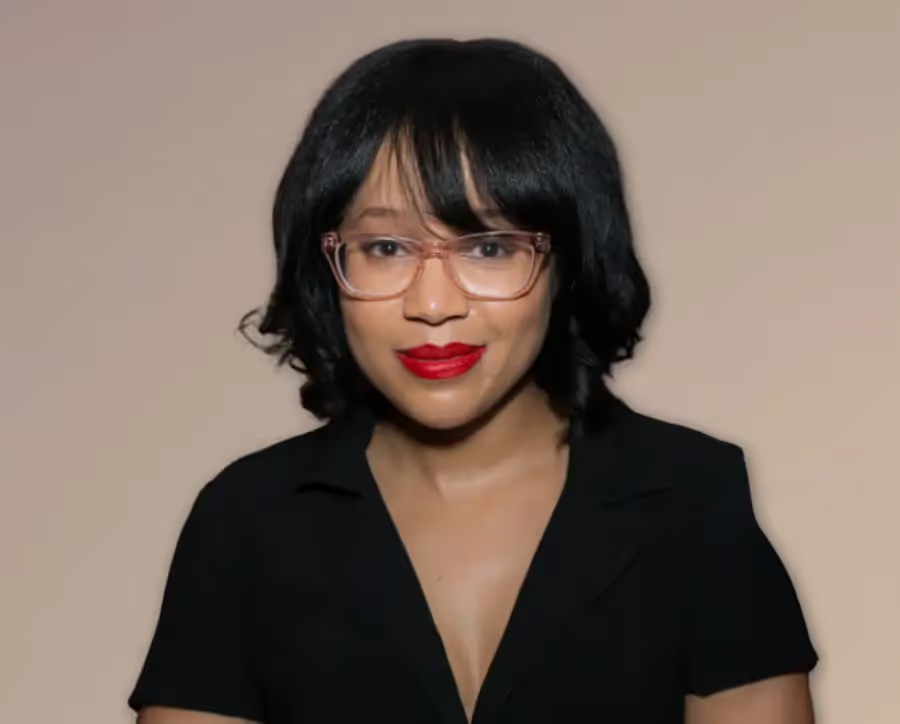
.avif)

.avif)
.avif)

.avif)

.avif)
.avif)
.avif)
.avif)

.avif)

.avif)

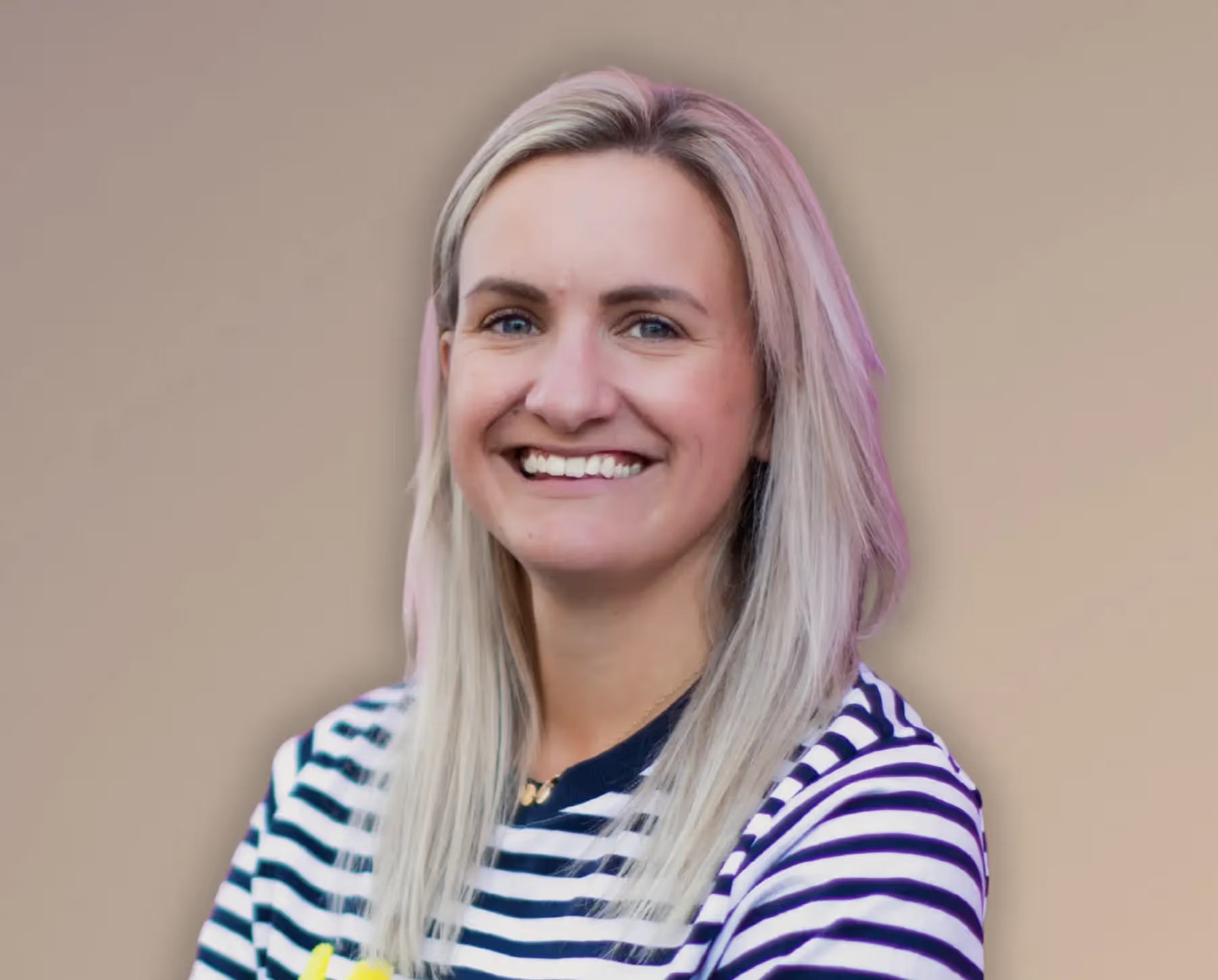
.avif)



.avif)
.avif)
.avif)


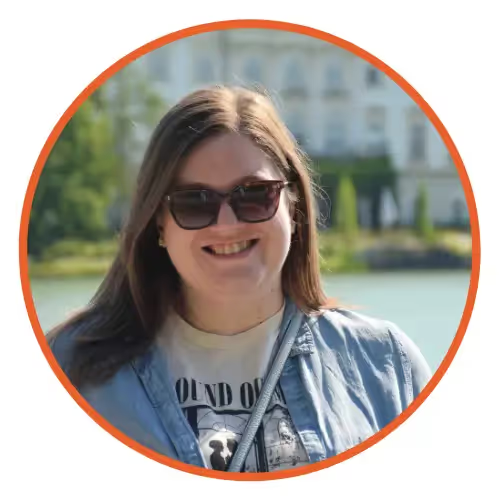
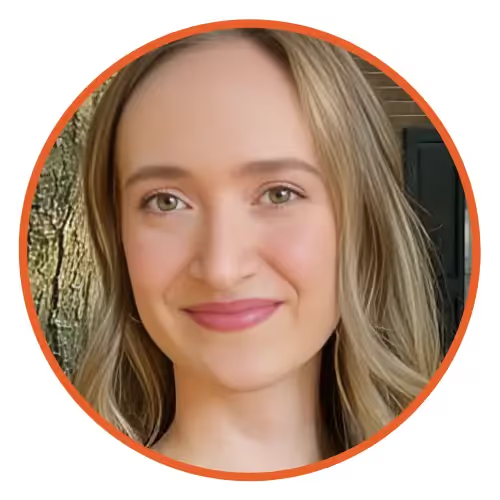

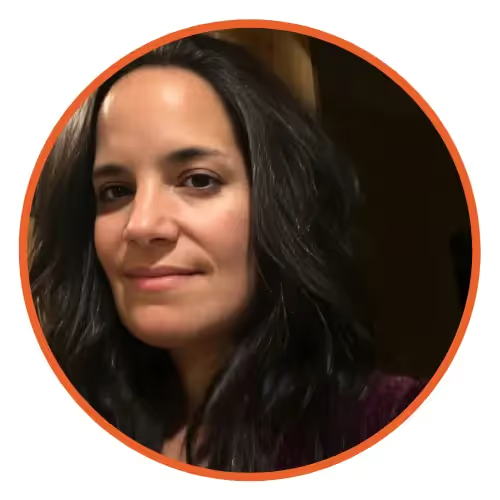
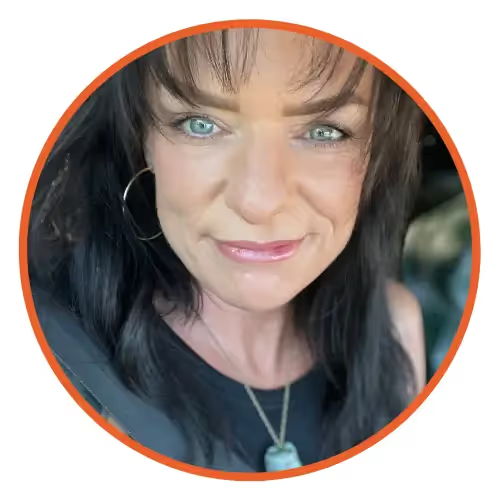
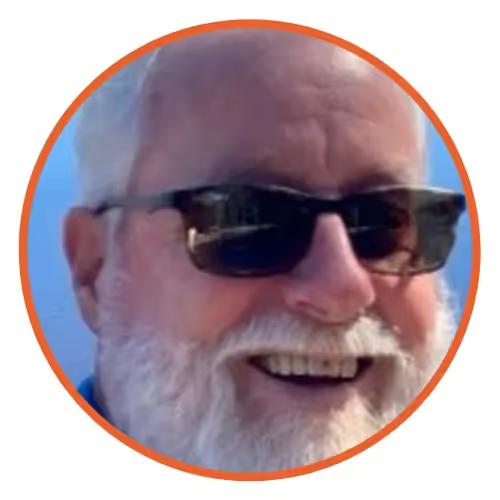
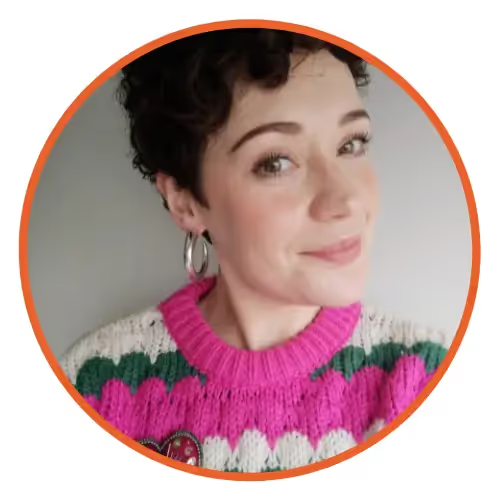

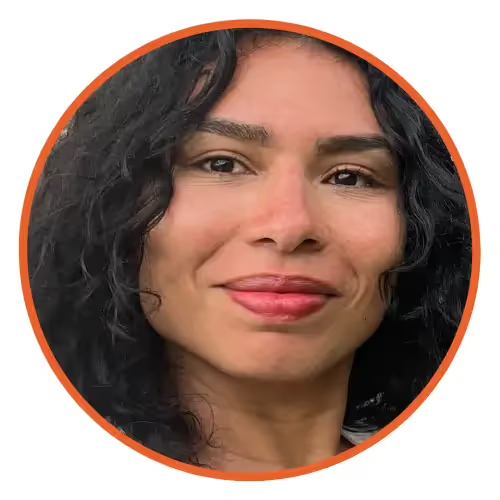
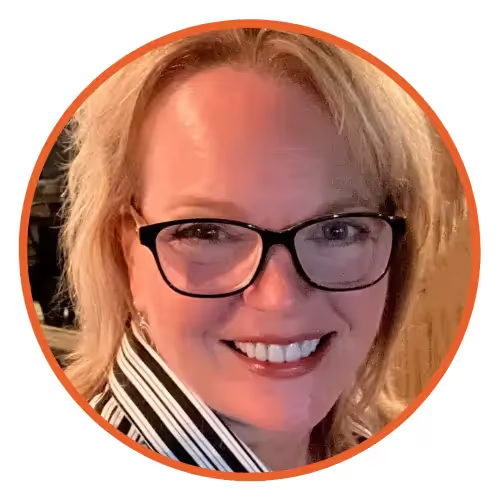
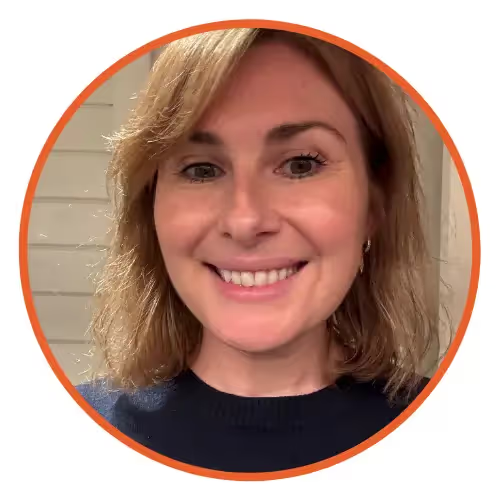
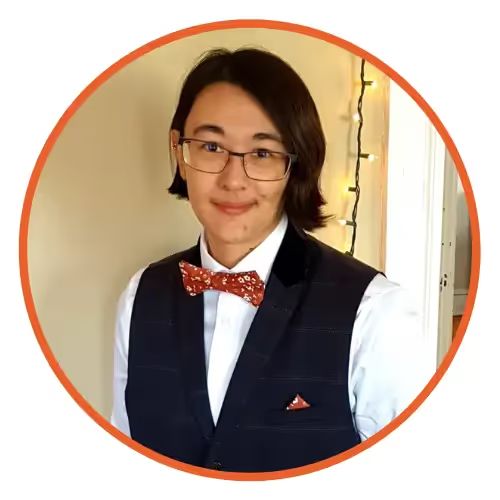
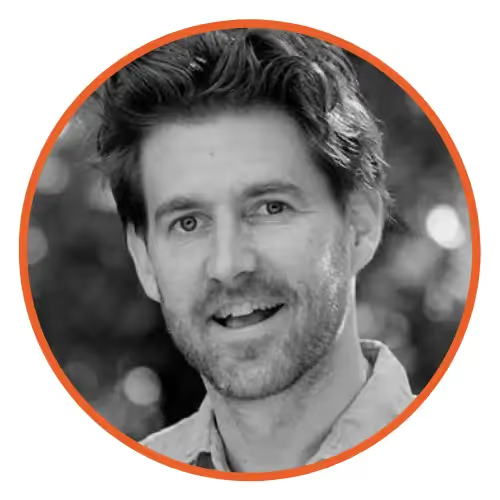
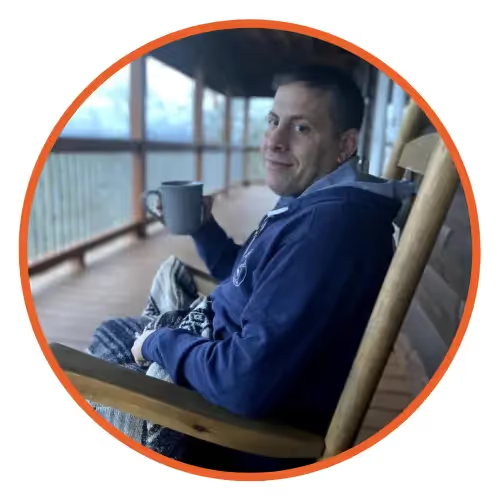
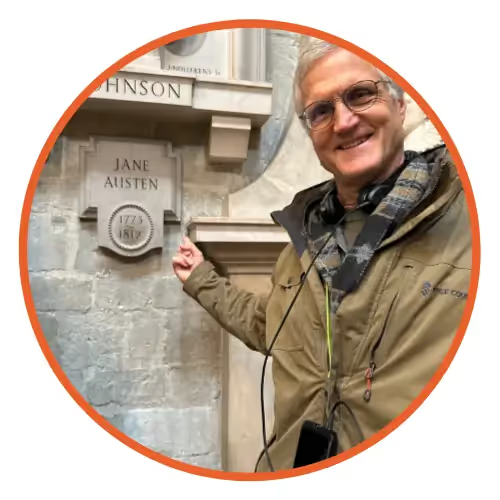
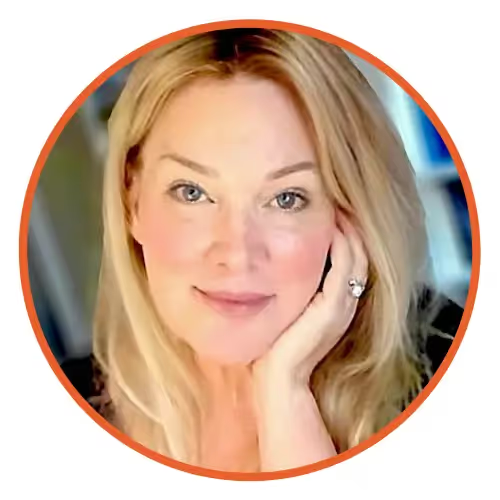
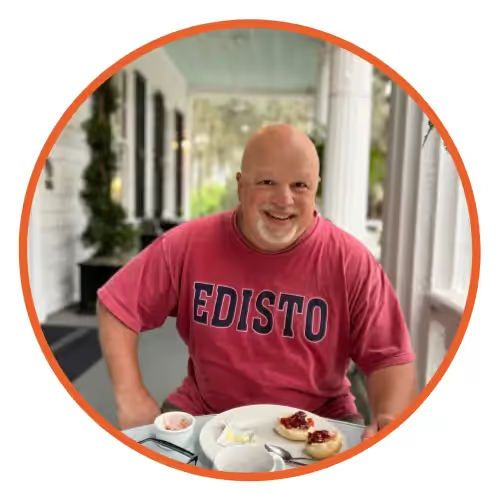

.avif)



